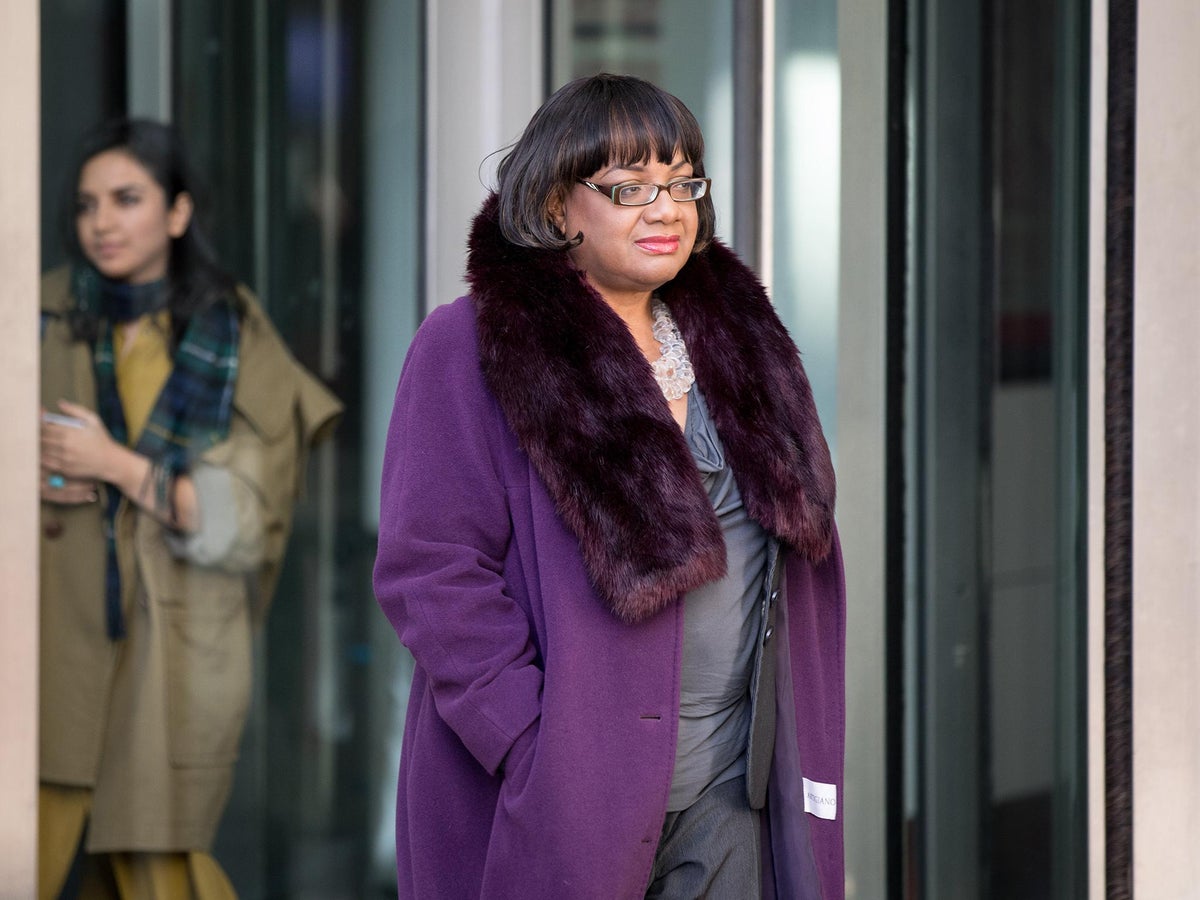
Diane Abbott has been condemned by her own wing of the Labour party as she is engulfed in an antisemitism row after claiming Jewish people are not subjected to racism.
The left-wing MP was suspended by the party and apologised almost immediately for a letter she wrote, published in The Observer.
It stated that Jewish, Irish and traveller communities have experienced “prejudice”, but added: “This is similar to racism and the two words are often used as if they are interchangeable.”
Despite her apology, Ms Abbott has not had the backing of fellow left-wingers. Jon Lansman, founder of the Momentum campaign group which backed former Labour leader Jeremy Corbyn, condemned her remarks as “disgraceful”.
He wrote on Twitter: “A disgraceful comment by Diane Abbott for which she has rightly been suspended from the Labour Party. Racism is not a competition!”
Labour Against Antisemitism said the comments were “simply unacceptable”. Spokesperson Fiona Sharpe said: “To reduce the racism faced by Jews to mere prejudice when in living memory six million Jews were systematically slaughtered in Europe for their race is grossly offensive.”
And, piling pressure on Sir Keir Starmer to stop her standing in the next election, the Campaign Against Antisemitism said her suspension “must be the first step towards her expulsion from the party”.
Sir Keir, the Labour chief whip and Ms Abbott’s local party will decide whether she stands for the party at the next election, shadow minister Pat McFadden has said.
Mr McFadden, the shadow chief secretary to the Treasury, told Sky News: “I’m sure that if she has made an apology, it is genuine. But it will be for the chief whip and the leader to decide what happens next.”
He added: “The way this works in the Labour party is you are picked by your local party, you have to be approved by the NEC [national executive committee]. The chief whip has a big say in that too. So there’ll be a process there.”

Lord Mann, an independent adviser to the government on antisemitism, said Ms Abbott’s comments were some of “the most astonishing” he had seen and suggested she would retire at the next election. He added that Ms Abbott’s apology is “only half an apology”.
He told Sky News: “I would anticipate that she will retire now at the next election. She has suffered from racism and to deny the suffering of other groups - the traveller community, the Jewish community - in terms of what they have suffered and continue to suffer and the discrimination against them.”
Lord Mann said Ms Abbott was “historically wrong, factually wrong and politically wrong”.

Labour MPs told The Independent the investigation should be done “quickly” – saying the facts and apology were clear enough not to “delay” any punishment.
Despite causes for her permanent expulsion, Labour MPs sympathetic to Ms Abbott’s return fear she could suspended indefinitely in a bid to undermine her selection as a candidate at the next general election.
Former Labour MP Claudia Webbe, who was expelled from the party after being convicted of harassing a love rival and sits as an independent, expressed her “solidarity” with Ms Abbott.
She wrote on Twitter: “I want to place on record my solidarity with Diane Abbott. She has retracted and disassociated. Now the pile on against her must stop. We must oppose all forms of racism, always.”
A close ally of Mr Corbyn, Ms Abbott said it was “extraordinary” for Sir Keir to have formally blocked him from standing as a Labour candidate at the next election.
Mr Corbyn was suspended for his response to the Equality and Human Rights Commission’s report into antisemitism in the party, arguing the issue had been “overstated” by his political opponents.
The former leader has called the decision a “shameful attack on party democracy”. He also said Sir Keir’s claims that the pair were never friends is “primary school stuff” and lashed out at anti-Rishi Sunak attack ads as “bad news all around”.
Ms Abbott was the first black woman elected to Parliament and is currently the longest-serving black MP. She has been the subject of racist abuse since becoming an MP in 1987, both inside Westminster and on social media and via letters and emails.
She was the target of almost half of all the abusive tweets sent to female MPs in the run-up to the 2017 general election, and received 10 times as much abuse as any other female MP, according to a study by Amnesty International.







